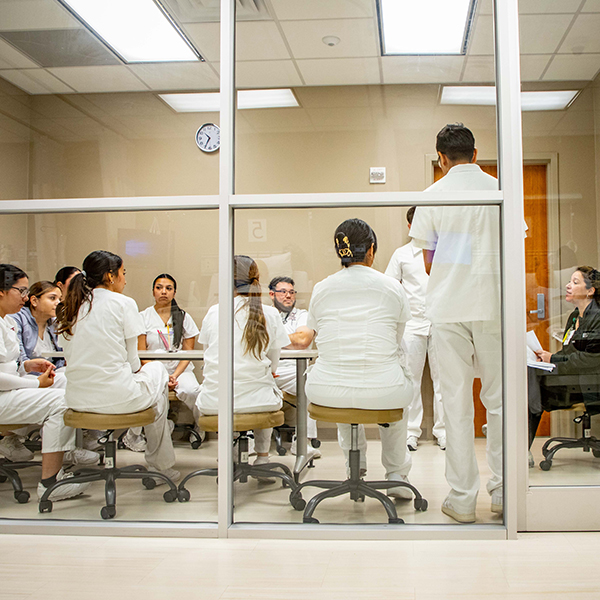Admission requirements:
Admission to BSPH: Admission into the university follows all university guidelines and processes and may be done online. Students will be admitted into the pre-public health program and will be fully admitted into the program in their junior year; criteria to be considered for admission into the BSPH program include: [1] students must be fully admitted by TAMIU and must be declared a BSPH major, [2] completed the University Core Curriculum and all BSPH foundational coursework requirements, (3) meet the foreign language requirement, and [4] have a minimum cumulative 2.50 GPA (on a 0.0 - 4.0 scale).
Additional Requirements for BSPH prior to program admission at student expense are:
- Completion of a criminal background check at student’s expense within 30 days of application and again prior to PHLT 4415/4416.
- Provide proof of CPR certification prior to PHLT 4415/4416 at student expense.
- The program requires that students have learning experiences with public/private agencies in the community. Prior to agency placement, based on the individual agency requirements and at student expense, students may be required to meet further agency requirements related to health requirements, background checks, and orientation.
Program Mission
The mission of the Bachelor of Science in Public Health (BSPH) program, which is rooted in the larger University mission, is to educate students from diverse disciplines and backgrounds in core public health knowledge areas so that they are equipped to help prevent disease and promote physical and mental health and social well-being through public health practice, leadership, and research.

Program Learning Outcomes
TAMIU’s BSPH will graduate students who will be knowledgeable and will be able to explain and apply an understanding of:
- Foundations, history, and profession of public health and public health systems.
- Knowledge synthesized from sciences, mathematics, social sciences, humanities and other disciplines to develop a framework of culturally appropriate knowledge and practice relating to individual and population health.
- Utilization of critical thinking, problem solving, creativity, and the research process to identify and address public health issues/problems in a variety of settings.
- Personal and social responsibility required to promote, advocate, and collaborate with others to meet the public health needs of individuals and communities.
- Effective oral, written, media, and online communication strategies/skills to educate and influence various community health stakeholders and public health policy.
- Epidemiology as part of a multidisciplinary approach in understanding disease causation and prevention in populations/communities.
- Systems thinking, organizational management, and leadership in public health.